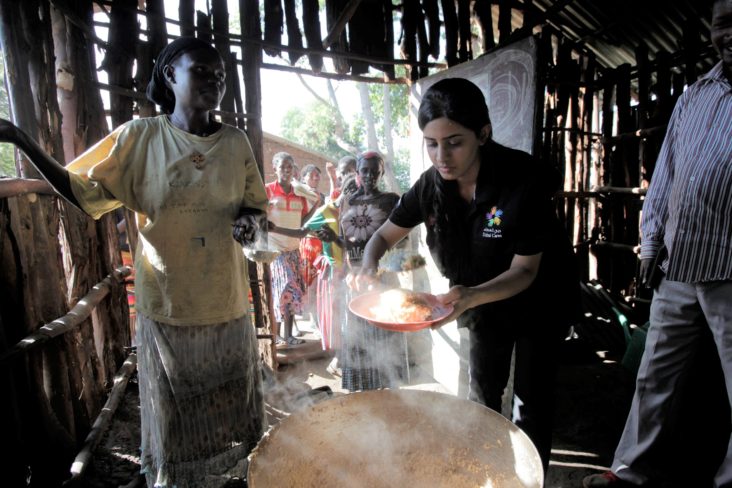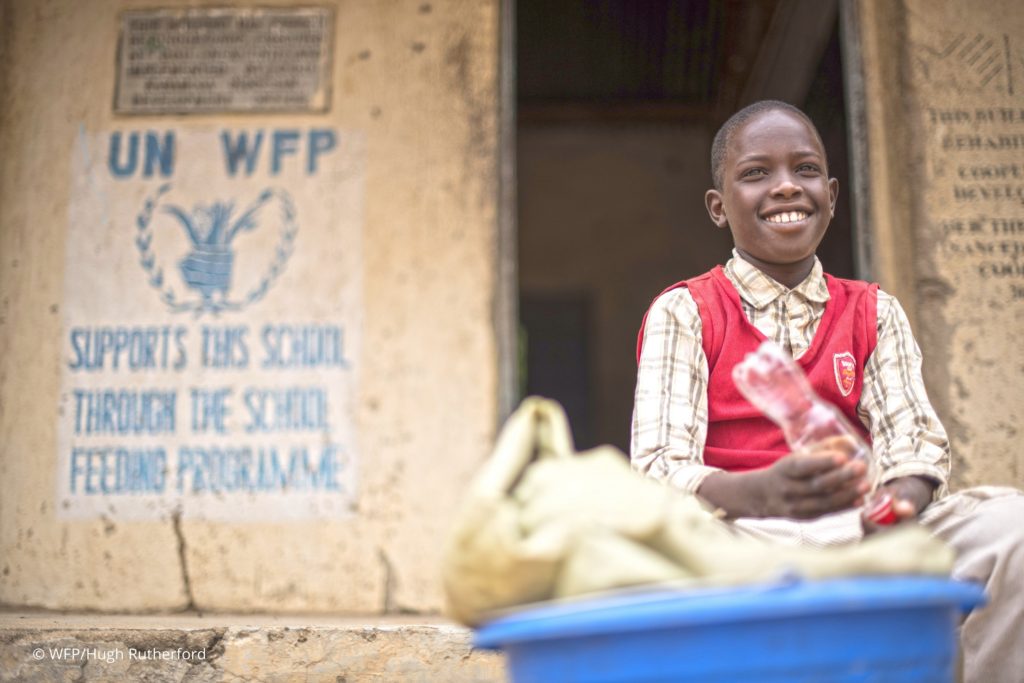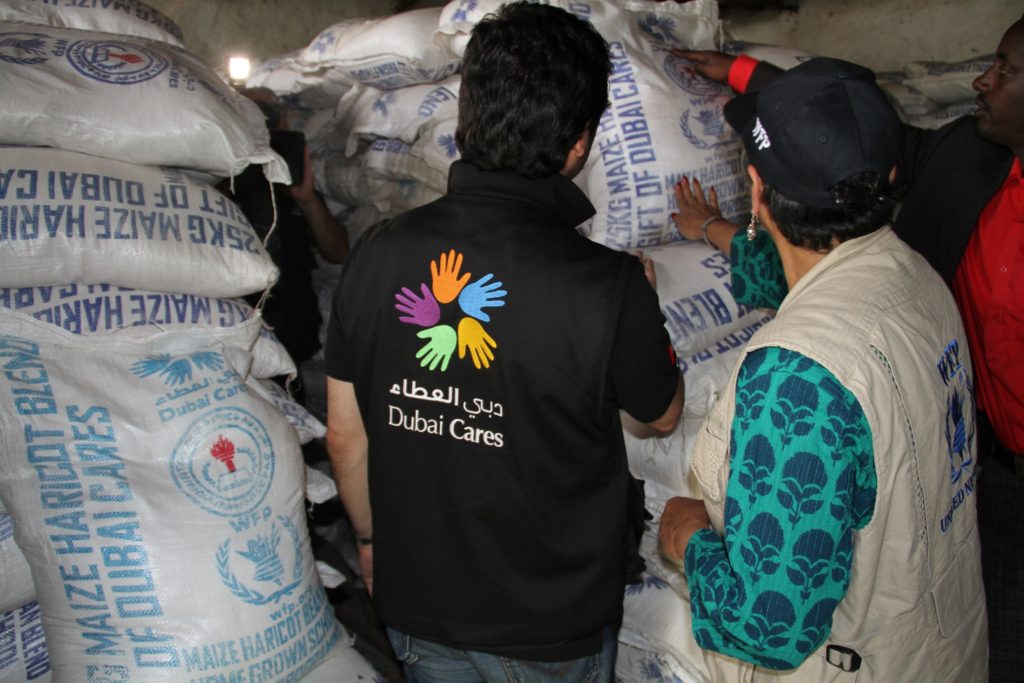The UN World Food Programme And Dubai Cares Partner To Jointly Invest In Health And Nutrition Of School Children In Africa

Dubai Cares, part of Mohammed Bin Rashid Al Maktoum Global Initiatives, and the United Nations World Food Programme (WFP) announced today a long-term strategic partnership to enhance school feeding programmes in Africa.
This strategic agreement renews and strengthens the longstanding partnership between WFP and Dubai Cares and focuses on securing the health and wellbeing of the next generation to promote learning and human capital. The announcement took place on the sidelines of Dubai International Humanitarian Aid & Development Conference and Exhibition (DIHAD) 2021 in Dubai.
Through this partnership, Dubai Cares and WFP will support the African Union to scale up school health and nutrition across the continent by strengthening continental technical capacities and strengthening research to improve the quality and effectiveness of programmes.
Dr. Tariq Al Gurg, Chief Executive Officer at Dubai Cares and Member of its Board of Directors said: “Owing to their far-reaching impact, school feeding programs have always played a critical role in supporting underserved communities across the African continent. During the COVID-19 pandemic, in particular, they have emerged as a game-changer impacting the entire community. Our strategic partnership with WFP to accelerate WFP’s global school feeding strategy in partnership with the African Union aims to support young children as well as girls with their education, while also enabling a positive ripple effect on economic growth through the creation of new opportunities for meaningful skilling, employment, and income generation, thereby playing a pivotal role in the creation of human capital.”
The joint programme will play a key role in addressing the learning crisis and the challenges to equity in education as a priority for the achievement of SDG 4 and the 2030 agenda. It will help realize Dubai Cares’ goals of improving children and youth’s access to quality education and promoting gender equality.
“We had this wonderful picture of an expanding safety net. School feeding was a growing priority for more and more governments in Africa. Then COVID-19 arrives and smashes it all,” says Carmen Burbano, Director of school-based programmes at the World Food Programme. “Now more than ever we need partners, such as Dubai Cares to continue supporting governments with school feeding programmes. WFP can provide the knowledge, the evidence and the technical support to help these programmes scale up – but we cannot do this alone.”
African governments under the leadership of the African Union have shown increasing commitment towards school feeding in the continent. One in two school children, or over 65 million children received a nutritious meal in school every day in 2019, a massive increase from 38.4 million in 2013. However, the COVID-19 pandemic has caused disruptions in learning and ended a decade of growth for school meal programmes in 2020.
The first contribution of AED 14,694,000(USD 4 million)under this agreement will support the school feeding agenda of the African Union over a period of 3 years aiming at restoring national school feeding programmes to levels prior to the pandemic and scaling up where they are needed the most. One key activity will be to develop and implement the first Africa-wide school health and nutrition database as a continental public good that will promote accountability and ownership. This agreement also strengthens the work of the African Union Home-Grown School Feeding Cluster and the collaboration among its members, including UN agencies such as UNICEF, FAO and UNESCO. The recently launched African Union Biennial Report on Home-Grown School Feeding (2019-2020) is a key deliverable of this project and has been produced with support of all Cluster members.
The work of WFP and Dubai Cares over the last ten years has contributed to a sea-change in how the world views the roles of health and education in the creation of human capital. The COVID-19crisis has had a huge impact on school children. Nearly 1.6 billion children and youth – or more than 90 percent of enrolled students around the world – are out of school and universities due to the COVID-19 pandemic. Due to the pandemic, nearly 370 million schoolchildren are now without school meals on which they depend, 65 million of these children live in Africa.
The effects on these children and their families are dire. For many hungry children, a school meal may be their only nutritious meal during the day. For poor families, the value of a meal in school is equivalent to about 10 percent of a household’s monthly income. This is an economic burden that comes on top of potential earning and employment loss during this pandemic.
WFP will work closely with Dubai Cares and the African Union on this multi-sectoral project to jointly ensure that all primary school children in Africa have access to good quality meals in school, accompanied by a broader integrated package of health and nutrition services.




